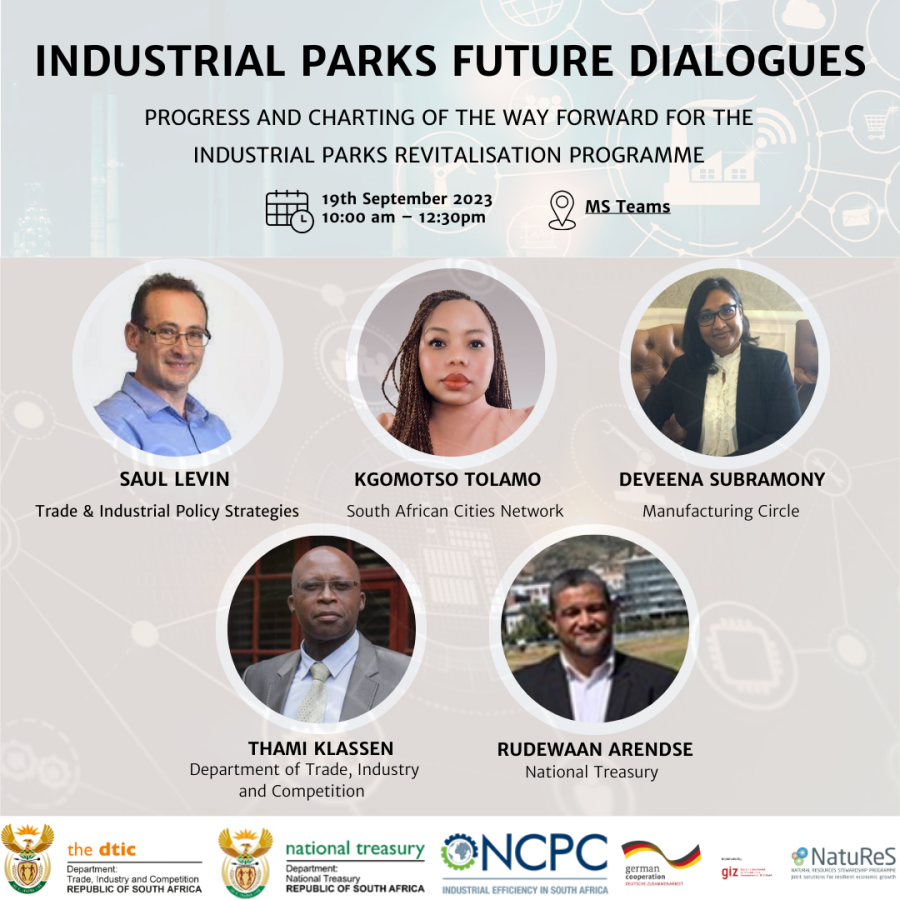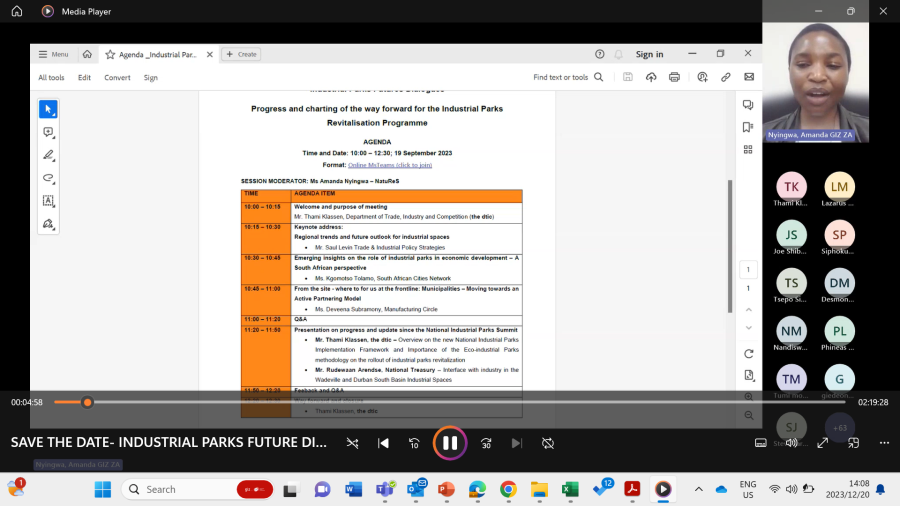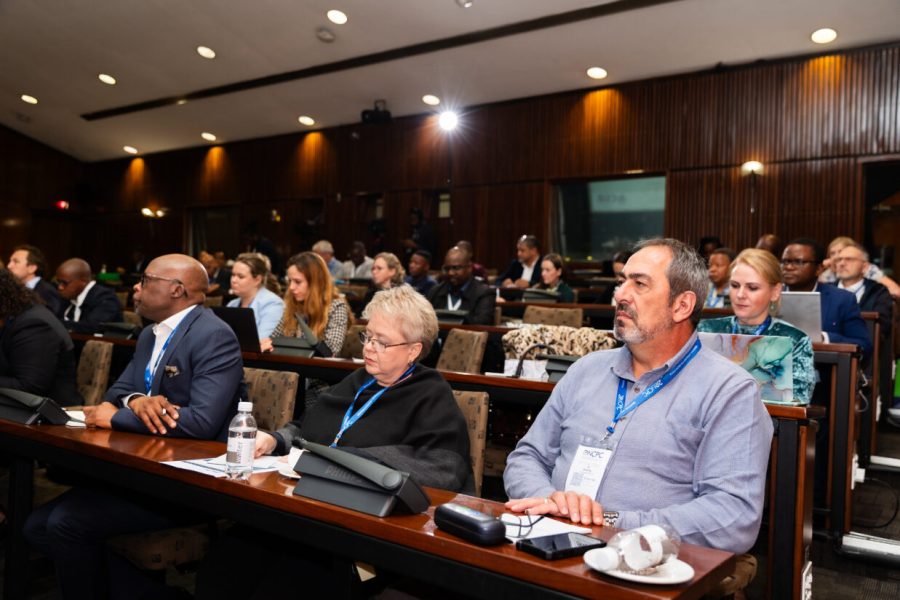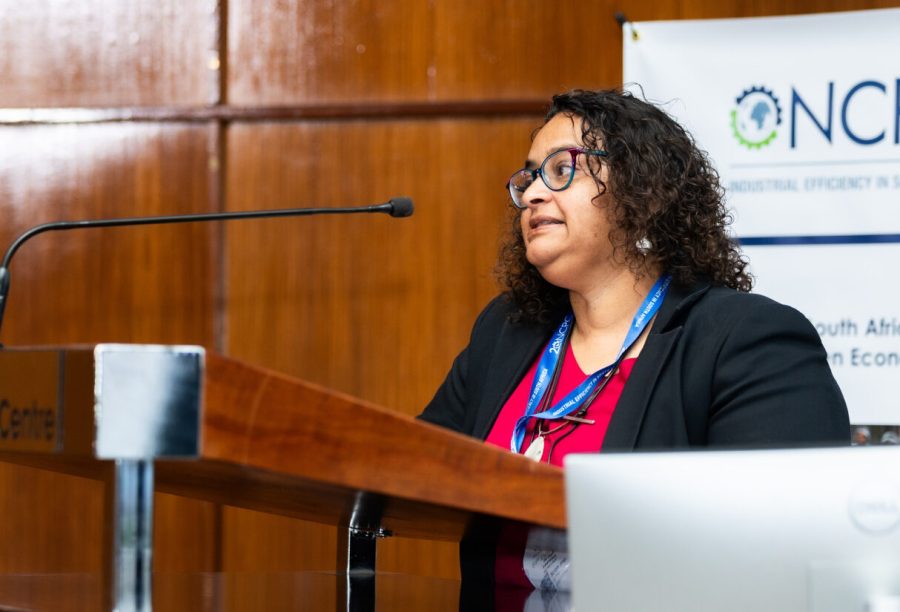Industrial parks South Africa – today, tomorrow together
On 19th September 2020 the Department of Trade, Industry and Competition (the dtic) in collaboration with National Treasury, National Cleaner Production Centre-South Africa (NCPC-SA) and GIZ Natural Resources Stewardship Programme (NatuReS) hosted the first Industrial Parks Futures Dialogue under the theme Progress and Charting of the Way Forward for the Industrial Parks Revitalisation Programme. This event was followed by the National Eco-Industrial Park Day on 12 October 2023 (National EIP Day) which was jointly hosted by NCPC-SA and the dtic. NatuReS participated at the National EIP Day and presented on Rethinking Industrial Parks in South Africa. Both events were attended by over 80 delegates respectively and they provided a formidable platform to map out the current challenges and interventions around industrial parks in South Africa. Additionally, the two events enabled discourse and ideation on innovating solutions to unlock the development potential of industrial parks in the country. To this end, this article seeks to synthesise and capture the discussions and insights generated by outlining the current landscape, discussing what could be done and how can we collectively overcome the existing challenges in industrial areas.

Today – the current landscape
The current picture of public-owned industrial parks and economic zones ( for purpose of article collectively referred to as industrial areas) in South Africa and sub-Saharan Africa is not encouraging Industrial areas struggle with attracting and retaining tenants, contributing towards employment creation and with implementing measures to overcome the fundamental obstacles to industrialisation in a particular country. In particular, industrial areas in South Africa are confronted with a myriad of climate and environmental risks which disrupt their operational abilities. As pointed out in Dr Lawrence’s presentation at the National EIP Day, the severe flooding which affected the Prospecton Industrial Area in Durban Kwa-Zulu Natal province, where the Toyota manufacturing plant is also located resulted in a 25 week shut down and an estimated of 68,600 vehicles being destroyed.

Tomorrow – what can be done and where to for industrial areas
A business unusual approach is required to turn around the current reality of industrial parks. This was the sentiment echoed by presenters at both events. To realise this endeavour, it is important to address inadequacies in key basic factors needed for successfully running industrial areas. Basic factors include governance and institutional arrangements, financing, safety and security along with other factors. Additionally, industrial areas need to seize new opportunities brought on by technology and move towards eco-industrial development if they are to overcome current challenges.

Together – how can this all be realised
To tackle the current challenges faced by industrial parks and take advantage of new opportunities, multistakeholder partnerships were recognised as critical catalytic platforms in both events. In addition, knowledge and information-sharing sessions were also identified as key pillars. This underscored the importance of platforms like the National EIP Day and Industrial Parks Futures Dialogue as critical spaces for bringing together sector stakeholders as well as facilitating dialogue and discourse which has the potential to realise impactful multistakeholder partnerships. The content covered in the two events highlighted that South Africa’s goal towards globally connected, regionally integrated and locally relevant will not be an easy one. Several key steps will be required in order to address the bottlenecks however, there are a range of opportunities to be exploited including the EIP concept for transitioning industrial parks into green industrial spaces. Furthermore, multistakeholder partnerships are emerging as critical vehicles for addressing challenges. On the subject of multistakeholder partnerships, NatuReS developed the Natural Resources Risks and Action Framework which serves as a supportive toolbox to tackle shared risks together with stakeholders from affected businesses, communities, and governments.
